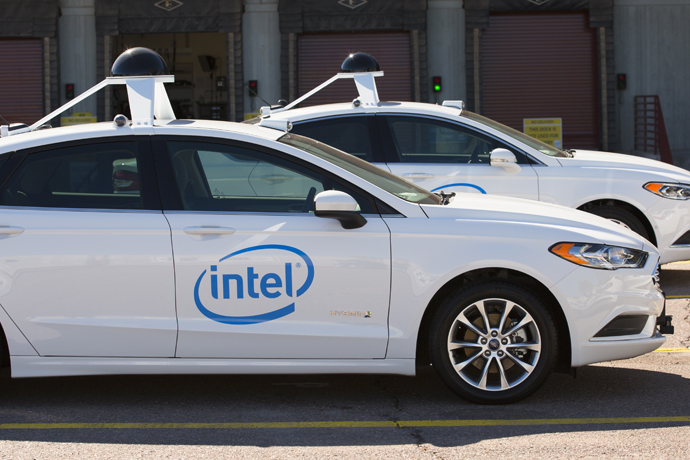Intel's self-driving cars
August 10, 2017 | Expert Insights

Tech company Intel has announced that it will be building a fleet of over 100 self-driving test vehicles, which will hit the roads later this year.
The announcement comes after the company acquired the Israeli autonomous technology firm called Mobileye.
Background
Experiments on self-driving autonomous cars have been conducted since the 1920s. However, it was only recently that it has been considered as a viable option in transportation. Since the 2010s, major car manufacturers like General Motors, Ford, Mercedes Benz, Volkswagen, Audi, Nissan, Toyota, BMW, and Volvo have been testing self-driving cars on the roads. In 2012, the Google driverless car project announced that its test fleet had already completed 480,000 km with no accidents.
In 2016, companies with investments in the industry started the Self Driving Car Coalition. Members of this coalition include Alphabet Inc's Google unit, Ford Motor, and Uber. The coalition’s goal is to push for federal action from the government to get self-driving cars to the market.
Analysis
In July 2017, Intel published a report that predicted a massive future market for self-driving cars. According to this report, by 2050, the market for self-driving cars would be over $7 trillion. In order to capitalize on this opportunity, Intel bought Mobileye for $15 billion. Mobileye makes computer vision technology. In layman terms, the company makes technology that can help vehicles “see.”
Amnon Shashua, soon-to-be senior vice president of Intel Corporation and future CEO/CTO of Mobileye in a statement said, “Building cars and testing them in real-world conditions provides immediate feedback and will accelerate delivery of technologies and solutions for highly and fully autonomous vehicles. Geographic diversity is very important as different regions have very diverse driving styles as well as different road conditions and signage. Our goal is to develop autonomous vehicle technology that can be deployed anywhere, which means we need to test and train the vehicles in varying locations.”
According to Intel, the work on the project will be spread across US, Israel and Europe.
Assessment
Our assessment is that Intel is making an investment in self-driving cars because it sees a big future for it within the automotive industry. However, there are a number of concerns that will have to be addressed before self-driving cars can be taken seriously by governments across the world. Unless companies can attest the safety of such cars on the roads, they can’t hope for governmental support.








Comments